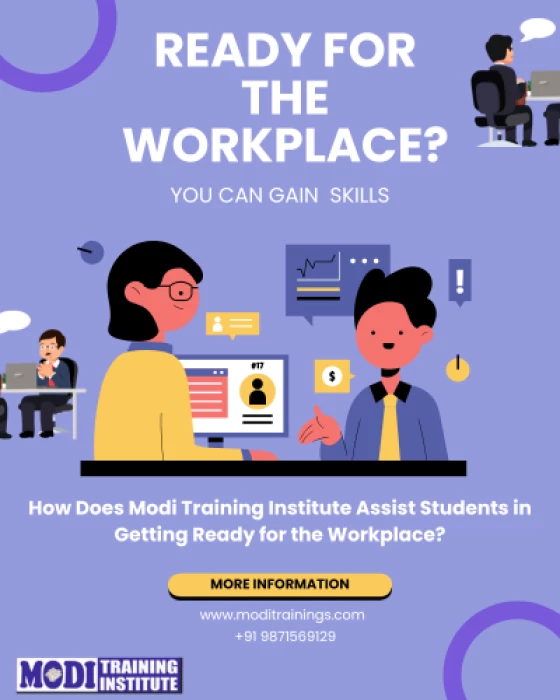Job oriented
How Does Modi Training Institute Assist Students in Getting Ready for the Workplace?
Getting a good job today is not just about having a degree. Companies are looking for candidates who have the right skills, practical knowledge, and confidence to perform from the very first day. This is where Modi Institute Training makes a big difference by preparing students for the real job market.

How Modi Institute Training Helps Students Get Job-Ready
- Practical Learning – Focus on hands-on training through live projects, assignments, and case studies instead of only theory.
- Industry-Relevant Curriculum – Courses are regularly updated with the latest tools, technologies, and market demands like digital marketing, IT, data science, and software development.
- Soft Skills Development – Special sessions on communication skills, teamwork, personality development, and interview preparation.
- Placement Support – Strong industry connections, career guidance, mock interviews, and resume workshops to help students secure jobs.
- Confidence Building – Real-world exposure and mentoring that prepare students to perform effectively from day one at the workplace.
- Career Transformation – Not just education, but complete preparation to make students job-ready and future professionals.
- Experienced Trainers – Learn from certified faculty and industry experts who share real-world insights.
- Workshops & Seminars – Regular sessions with professionals to keep students updated on new trends and technologies.
- Internship Opportunities – Practical exposure through internships with partnered companies to gain real work experience.
- Flexible Learning Options – Classroom and online training modes available for convenience.
- Certifications – Industry-recognized certificates provided after course completion to strengthen resumes.
- Peer Learning & Networking – Opportunities to connect with like-minded students, alumni, and professionals.
- Career Counseling – One-on-one guidance to help students choose the right career path and specialization.
- Continuous Assessment – Regular tests, assignments, and feedback sessions to track progress and improvement.
- Portfolio Development – Support in building a professional portfolio with projects and case studies to showcase skills.
- Lifetime Learning Support – Some programs provide continued access to updated resources and learning materials.






